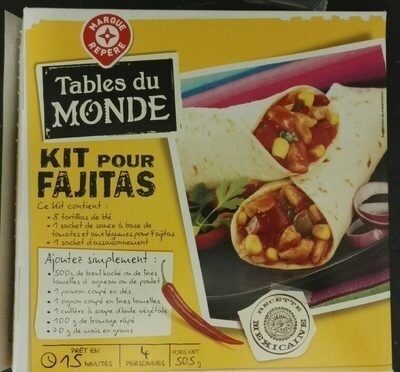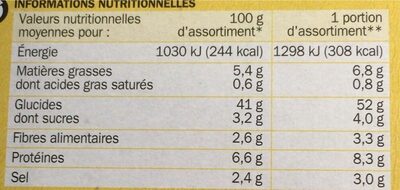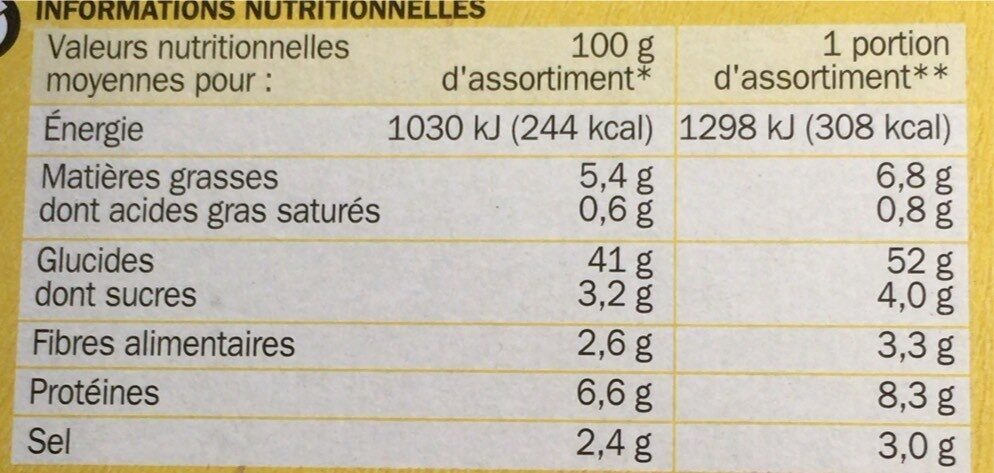Kit pour fajitas - Tables du Monde - 505 g
This product page is not complete. You can help to complete it by editing it and adding more data from the photos we have, or by taking more photos using the app for Android or iPhone/iPad. Thank you!
×
Some of the data for this product has been provided directly by the manufacturer Scamark.
Barcode: 3564700299135 (EAN / EAN-13)
Quantity: 505 g
Packaging: Plastic, Box, Container
Brands: Tables du Monde, Marque Repère
Categories: Meal kits, Fajitas kits, Kits pour fajitas
Labels, certifications, awards:
Green Dot, Nutriscore, Nutriscore Grade D
Stores: Leclerc
Countries where sold: France
Matching with your preferences
Environment
Packaging
Transportation
Report a problem
Data sources
Product added on by openfoodfacts-contributors
Last edit of product page on by quechoisir.
Product page also edited by beniben, date-limite-app, kiliweb, org-scamark, packbot, roboto-app, scamark, segundo, tacite-mass-editor, teolemon, yuka.WDdGWURvSXZoK0pUcWZFZjN5NlB4ZXB3bUlHVGJYKzFJY05NSVE9PQ, yuka.ZDZ3Q0lvb2loc1k3dS9NM3hUcUsvNGg3eThXcmNEbUZLT0VMSVE9PQ, yuka.sY2b0xO6T85zoF3NwEKvlkJlD-KCpG_cCh3nuWuv-faDNcOxYclgvLT6Nas, yuka.sY2b0xO6T85zoF3NwEKvlm1kDtTUvm_dOj7tsl2lmPShcZfNQd4p-pL_EKs, yuka.sY2b0xO6T85zoF3NwEKvlnNbQ9XZqy7ObCzlomyQ7IiAFcPie4pCwNHaAqs.











